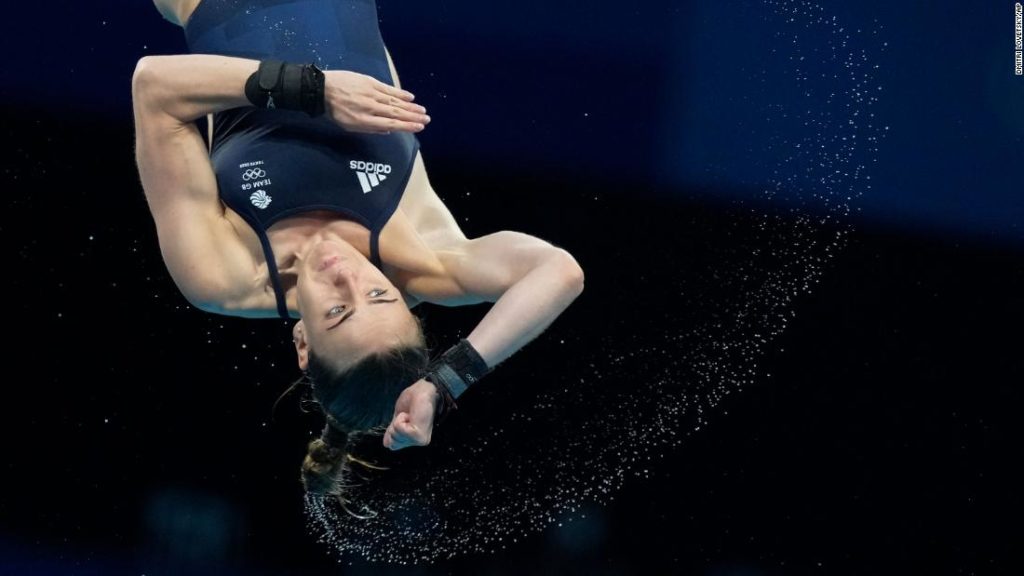Divers typically emerge from the water after a plunge and immediately take a quick shower by the side of the pool — even though they are already wet. Then they dry themselves off with little towels — even though they will get wet again on their next dive.
“Why do divers shower after each dive?” has been one of the top Google searches about the Olympics in the past week.
According to Brehmer, the answer comes down to one thing.
“Divers shower in between dives typically just to keep themselves and their muscles warm,” he says. They usually rinse off in water that’s warmer than the pool.
“Usually after a diver does a dive, they will have to wait a good amount of time before their next dive,” Brehmer says. “The … air temperature on the pool deck may be a little chilly, so the shower can help keep muscles warm. Diving is such a precise and fast-twitch sport, if the diver gets a little cold and tight, it could really affect their performance.”
Why they use tiny towels
Staying warm is also one of the reasons swimmers and divers use tiny towels called chamois — pronounced “shammy” — at major events.
The towels are portable and extremely water absorbent, allowing the divers to dry off quickly and stay warm, Brehmer says.
Remaining dry also means safer — and more competitive — dives.
“When the divers are flipping through the air, they are grabbing onto their legs and squeezing very tight,” he says. “If their legs are wet, then there’s a good possibility that … their hands will slip off their legs and they will come out of the dive early — which could result in injury and almost always lower scores.”
Why they tape their bodies
Olympic divers perform mind-blowing acrobatics into deep pools at high velocity, and keeping their muscles healthy is a crucial part of their success.
Any stress in muscle movement can lead to drastic results. That’s another reason some divers wear tape on their knees, back or shoulders.
It’s similar to the tape worn by beach volleyball players, tennis players and other athletes.
“Basically it just provides a little extra support and can relieve pain in muscles, joints and ligaments,” Brehmer says.
In a highly competitive sport where the tiniest edge may mean the difference between a medal and finishing sixth, many athletes are leaving nothing to chance.
You may also like
-
Super League: UEFA forced to drop disciplinary proceedings against remaining clubs
-
Simone Biles says she ‘should have quit way before Tokyo’
-
Kyrie Irving: NBA star the latest to withhold vaccination status
-
Roger Hunt: English football mourns death of Liverpool striker and World Cup winner
-
‘Every single time I lift the bar, I’m just lifting my country up’: Shiva Karout’s quest for powerlifting glory

